illegal immigration
Texas to keep putting razor wire on border after Supreme Court allows Biden to remove it
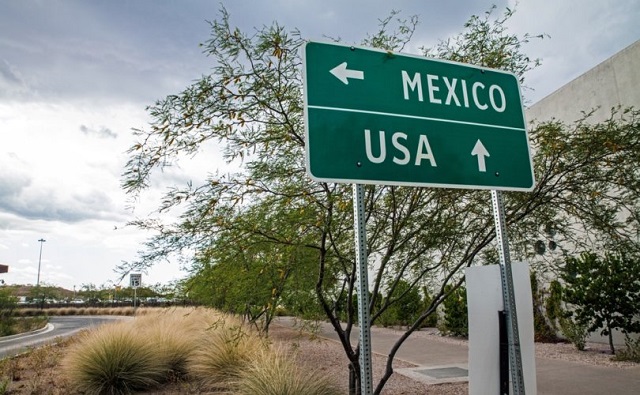
From LifeSiteNews
‘I have already declared an invasion under Article I, § 10, Clause 3 to invoke Texas’s constitutional authority to defend and protect itself. That authority is the supreme law of the land and supersedes any federal statutes to the contrary,’ Texas Gov. Greg Abbott said.
Texas is asserting a constitutional right to continue erecting razor-wire fencing at the southern U.S. border despite a recent ruling by the U.S. Supreme Court allowing the Biden administration to cut it down.
On Monday, the nation’s highest court voted 5-4 to allow federal border-patrol agents to cut down wire erected by the state, NPR reported. Trump-appointed Justice Amy Coney Barrett cast the deciding vote, siding with the court’s four liberals.
While allowing the feds to keep cutting the wire, however, the ruling did not forbid Texas from continuing to put it up. On Wednesday, Republican Gov. Greg Abbott released a statement accusing the federal government of having “broken the compact between the United States and the States” by neglecting and violating its “constitutional duty to enforce federal laws protecting States, including immigration laws on the books right now.”
The statement notes that President Joe Biden has ignored repeated appeals to secure the border, one of which Abbott hand-delivered to Biden in person, instead “instruct[ing] his agencies to ignore federal statutes that mandate the detention of illegal immigrants” and “wasting taxpayer dollars to tear open Texas’s border security infrastructure” in court.
“The failure of the Biden Administration to fulfill the duties imposed by Article IV, § 4 has triggered Article I, § 10, Clause 3, which reserves to this State the right of self-defense,” Abbott said. “For these reasons, I have already declared an invasion under Article I, § 10, Clause 3 to invoke Texas’s constitutional authority to defend and protect itself. That authority is the supreme law of the land and supersedes any federal statutes to the contrary. The Texas National Guard, the Texas Department of Public Safety, and other Texas personnel are acting on that authority, as well as state law, to secure the Texas border.”
Abbott was referring to the Compact Clause of the U.S. Constitution, which forbids states from taking military-like action “unless actually invaded, or in such imminent Danger as will not admit of delay.” Abbott also confirmed via social media that Texas would continue to put up razor wire along the border:
Texas’ razor wire is an effective deterrent against the illegal border crossings encouraged by Biden’s open border policies.
We continue to deploy this razor wire to repel illegal immigration. pic.twitter.com/PE8wiMYaYI
— Greg Abbott (@GregAbbott_TX) January 24, 2024
“If they put up wire, that’s fine,” an unidentified federal law enforcement source told Business Insider. “If it interferes with federal law enforcement’s ability to do its job, that’s when there’s an issue.”
Numerous Republican governors, including Ron DeSantis of Florida, Brian Kemp of Georgia, and Glenn Youngkin of Virginia, have expressed their support for Abbott and Texas, as has Republican presidential candidate Nikki Haley.
The matter of the razor wire may not yet be a legal showdown, but it highlights the extent of the animosity between the Biden administration, border states, and even some Democrat localities that have begun to feel the strain of illegal immigration (the latter thanks in large part to Abbott and DeSantis flying illegal immigrants to blue states).
Biden has presided over a surge of illegals entering the United States and being released inside the country, following the reversal of several Trump-era border policies, such as the previous administration’s third-country agreements with the governments of El Salvador, Guatemala, and Honduras to have them hold refugees while their applications for political asylum in America were reviewed. The situation has created a humanitarian crisis, prompting even the United Nations’ International Organization for Migration (IOM) to declare America’s southern border with Mexico the “deadliest land crossing in the world” in 2022.
illegal immigration
Panama’s Incoming President Wants To Shut Down His Country’s Most Treacherous Route For Migrants — But Will It Work?
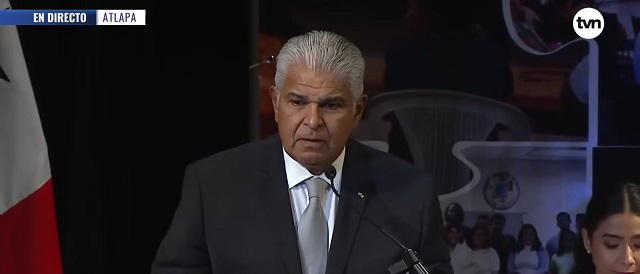
 From the Daily Caller News Foundation
From the Daily Caller News Foundation
Panama’s new president-elect is pledging to close a key corridor used by hundreds of thousands of migrants en route to the U.S., but experts and Panamanians aren’t so sure it can be done.
President-elect Jose Raul Mulino handily won the Panamanian presidential election earlier in May, riding a wave of voter discontent over the country’s slow economic growth and an endorsement from a popular former president. The 64-year-old lawyer also campaigned on a pledge to end the illegal immigration that runs through the tiny Central American nation’s Darien gap — but some question the feasibility of that pledge, given the vastness of the jungle, the cartels that populate it and the sheer amount of migrants flowing through it.
“While President Mulino’s promise to close the Darien Gap to migrants appears to be made in good faith, it’s unclear how he could ever actually deliver,” Matt O’Brien, director of investigations for the Immigration Reform Law Institute, said to the Daily Caller News Foundation. “The region consists of thousands of square miles of jungle that are virtually impossible to police.”
“And the gap itself is already home to massive migrant assistance operations that are funded by politically-potent, anti-borders groups from all over the world,” O’Brien added. “None of these organizations are likely to close up shop and go home without a fight.”
The number of illegal immigrants crossing the Darien Gap is incredibly massive — and rising. More than half a million migrants passed through the region in 2023, double the nearly 250,000 that had crossed the year before, according to the Council of Foreign Relations.
“The border of the United States, instead of being in Texas, moved to Panama,” Mulino said on the campaign trail. “We’re going to close the Darien and we’re going to repatriate all these people,” referring to a vast jungle region across Panama and Colombia known as the Darien Gap.
The pledge has received notable coverage from American media, and the Secretary of State’s office made mention of anticipated cooperation on the issue shortly after Mulino’s election victory.
The Darien Gap, however, is roughly 40 miles wide and 100 miles long, with a combination of rainforests and mountains and virtually no government presence, according to the Guardian. Hiking through the region can take days.
The area is also under the de facto authority of drug-trafficking organizations such as the Revolutionary Armed Forces of Colombia (FARC) and the Gulf Clan paramilitary group, according to the Council on Foreign Relations. The groups are known to extort and sexually assault travelers who pass through the region.
The idea of closing off the Darien has long been regarded as too much of a burden to accomplish, given these factors.
“Panama closed their border,” Wisconsin GOP Rep. Tom Tiffany said in 2021 after a trip to the Darien Gap. “But they, in effect, can’t because of the incredible crush of migrants that are coming from all over the world.”
More recently, Juan Pappier, the Americas deputy director at Human Rights Watch, framed Mulino’s promise to close the Darien Gap as “virtually impossible.”
The majority of migrants crossing the Darien Gap are Venezuelan nationals, but people from Ecuador, Haiti and other African and Asian countries also utilize these routes to make it to the U.S. border.
Panamanians have made notice of the enormous flow of migrants crossing their country on a daily basis.
“It’s impossible to not run into a foreigner who is begging for money or puts their child in front of you to beg for money, or sell you chewing gum or candy,” Allan Baitel, a born-and-raised Panamanian citizen, told the DCNF. “We have a lot of individuals who are present on the streets at all times, 24 hours a day with signs asking for help.”
Baitel noted that the government is “doing its best” to mitigate disruptions to daily Panamanian life by getting the migrants off the street and moving them to the border of Costa Rica. While he acknowledged the difficulty in closing up the Darien Gap, he expressed optimism over Mulino’s background.
“It’s going to be very hard to close the gap, very difficult,” he said, noting that Colombia was unlikely to help in the effort. Colombia’s leftist president, Gustavo Petro, has long been hesitant to adopt measures to physically bar migrants from entering the jungle, claiming that a more humanitarian approach should be taken.
“Let me tell you that Mulino’s background is in security,” Baitel said. “He has preparation in having to deal with a lot of these issues, so he may have something up his sleeve.”
Currently, the Panamanian government’s policy has been to immediately bus incoming migrants to the Costa Rican border, allowing them to carry on in their U.S.-bound journey. In a recent radio interview, the incoming president said most would-be migrants would simply not even try to cross Panama once he begins deporting them.
“Because when we start to deport people here in an immediate deportation plan the interest for sneaking through Panama will decrease,” Mulino said in the radio interview. “I assure you they are going to say that going through Panama is not attractive because they are deporting you.”
For many Panamanian citizens, the crisis hasn’t made much of a personal impact on them since the vast majority of the migrants are quickly moving on and out of the country.
“We don’t see that many, no one wants to stay here. They want to get to the shining city on the hill,” said Surse Pierpoint, a third-generation Panamanian who spoke to the DCNF.
Pierpoint said that the topic of immigration doesn’t even crack the “top five” issues that matter to him at the moment. Like many other voters, Pierpoint cited the tough economic times the country has faced and he liked Mulino’s agenda for the private sector.
Panama, once the top performing economy in Latin America, has struggled with credit downgrades, slow economic growth, less foreign direct investment and the closing of a major copper mine. The president-elect campaigned on a pledge to bring life back into the private sector with a pro-market agenda.
As for closing the Darien Gap, Pierpoint has doubts: “I don’t know how he can do that frankly,” he said. “It sounds good, but I don’t see how it’s feasible in the short term.”
While so much attention has been focused on Mulino’s ability to close the migration routes himself, policy experts in Washington, D.C,. and locals in Panama alike also pointed the finger back at the Biden administration. The crisis taking place in this Latin American isthmus, they say, begins and ends at the White House.
“Panama president-elect Jose Mulino’s pledge to close the Darien Gap route that migrants are traversing on their way to the U.S. southern border demonstrates the far-reaching negative consequences of Pres. Biden’s immigration policies,” Eric Ruark, director of research at NumbersUSA, said to the DCNF. “This is a humanitarian crisis entirely of President’ Biden’s making, and Panama is just one of the countries dealing with the fallout.”
“All of this has to do with the United States,” Baitel added. “It will not cease until there’s a very drastic change in the United States.”
espionage
EXCLUSIVE: House Committee To Investigate Spike In Chinese Illegal Immigration Following DCNF Report
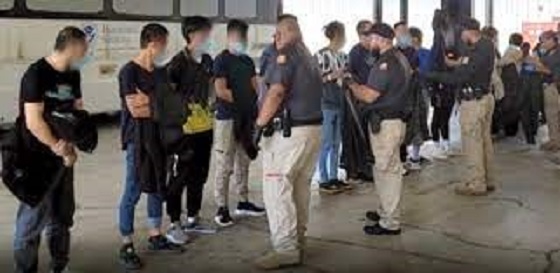
 From the Daily Caller News Foundation
From the Daily Caller News Foundation
Dan Bishop, chair of the subcommittee on Oversight, Investigations, and Accountability, told the DCNF that a “wide-open border presents a ripe opportunity for the [Chinese Communist Party] to undermine our national security.”
A House committee is scheduled to examine the historic surge in Chinese illegal immigration next week, the Daily Caller News Foundation has learned.
The House Homeland Security Committee’s Subcommittee on Oversight, Investigations, and Accountability will hold a hearing on Thursday concerning the roughly 8,000% increase in Chinese illegal immigration the U.S. has experienced since March 2021, a committee spokesperson told the DCNF. The DCNF recently revealed an internal U.S. Customs and Border Protection (CBP) email showing that the Biden administration dramatically simplified the vetting process for Chinese illegal immigrants in April 2023, which has increased the speed of Chinese illegal immigrants entering the country.
The CBP email directed Border Patrol agents to reduce the 40 questions they were required to ask Chinese illegal immigrants down to just five “basic questions” concerning their “Military Service,” “Universities,” “POB/Region,” “Employment” and “Political Party.”
North Carolina Republican Rep. Dan Bishop, chair of the subcommittee on Oversight, Investigations, and Accountability, told the DCNF that a “wide-open border presents a ripe opportunity for the [Chinese Communist Party] to undermine our national security.”
“This dramatic surge calls for intense scrutiny — especially as Border Patrol agents have been instructed to decrease vetting for Chinese nationals in order to process them into the country faster,” Bishop said. “As the CCP continues its quest for geopolitical dominance and threatens our sovereignty, we must examine the risks presented by releasing ever-increasing numbers of minimally-vetted Chinese nationals into our communities.”
READ the leaked @CBP email obtained by the @DailyCaller showing that the Biden Admin radically simplified the vetting process for Chinese illegal immigrants@DailyCaller pic.twitter.com/06sZK3Kiuz
— Philip Lenczycki 蔡岳 (@LenczyckiPhilip) January 2, 2024
U.S. authorities have encountered 24,376 Chinese nationals at the southwest border in fiscal year 2024 alone, according to the committee. In February 2024, the Republican National Committee adopted a resolution condemning the Biden administration’s immigration policies, citing the national security threat posed by “Chinese military-aged men” entering the country illegally, the DCNF reported.
Ammon Blair, a former Border Patrol agent and Army veteran, told the DCNF that “being a Border Patrol agent during the surge in Chinese illegal aliens felt like confronting a scene from ‘Red Dawn.’”
“Gradually, it appeared that our role was being coerced by current administration policies, from honorably defending our borders to paradoxically laying down a ‘Silk Road’ for our adversaries,” said Blair, who now works as senior fellow for the Texas Public Policy Foundation. “This evolution in policy seems complicit in the CCP invasion and their embedded threats like cyber warfare, drug warfare with Mexican cartel proxies, and economic destabilization.”
The simplification of the vetting process for Chinese illegal immigrants and other Biden administration policies have “created pitch-perfect conditions” for “the infiltration of Chinese agents of espionage,” Todd Bensman, a senior national security fellow at the Center For Immigration Studies, told the DCNF.
“Intelligence community assessments show that China intends to ramp up espionage and political suppression campaigns in the coming years inside the U.S. and will need an expanded labor force for the effort,” said Bensman, who is one of three experts scheduled to testify during Thursday’s hearing.
THREAD@BryanDeanWright kindly had me on his podcast to discuss recent @DailyCaller investigations re: CCP influence operations
PART 1/3 covered:
– leaked @CBP email re: how @POTUS simplified vetting process for 🇨🇳 illegals
🙏PLEASE WATCH & SHARE – THANK YOU!🙏 pic.twitter.com/HreHdynFSD
— Philip Lenczycki 蔡岳 (@LenczyckiPhilip) March 8, 2024
Bensman’s testimony will feature photos of identification cards and passports discarded by Chinese illegal immigrants just after crossing the U.S. southern border, a committee source told the DCNF.
Cory Gautereaux, a small business owner and veteran living near the San Diego border, collected those discarded materials and shared them with Bensman.
Gautereaux told the DCNF that he believes Chinese illegal immigration is a “serious national security threat.”
“If they are discarding their IDs and hiding their identity there is a reason,” Gautereaux said. “Since our elected leaders are reluctant to visit the border, I’ll be glad to physically deliver these items to Washington and testify to what I’ve seen.”
-

 National1 day ago
National1 day agoDespite claims of 215 ‘unmarked graves,’ no bodies have been found at Canadian residential school
-

 Brownstone Institute1 day ago
Brownstone Institute1 day agoThe WHO’s Proposed Pandemic Agreements Worsen Public Health
-
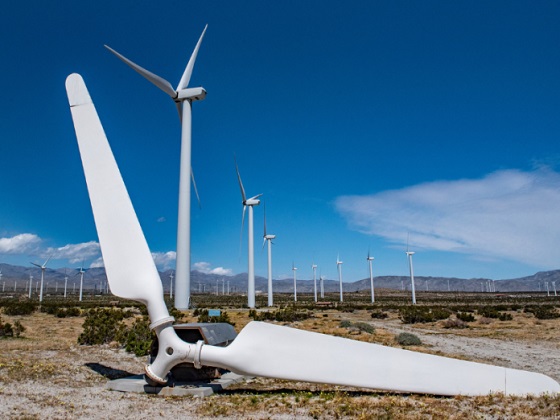
 Energy2 days ago
Energy2 days agoBuckle Up for Summer Blackouts: Wind Is Already Failing Texas in Spring
-
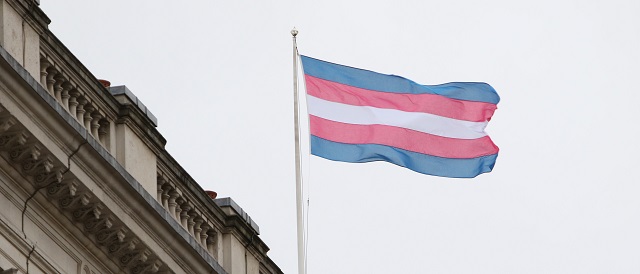
 Health1 day ago
Health1 day agoTHE WPATH TAPES: Behind-The-Scenes Recordings Reveal What Top Gender Doctors Really Think About Sex Change Procedures
-

 illegal immigration1 day ago
illegal immigration1 day agoPanama’s Incoming President Wants To Shut Down His Country’s Most Treacherous Route For Migrants — But Will It Work?
-
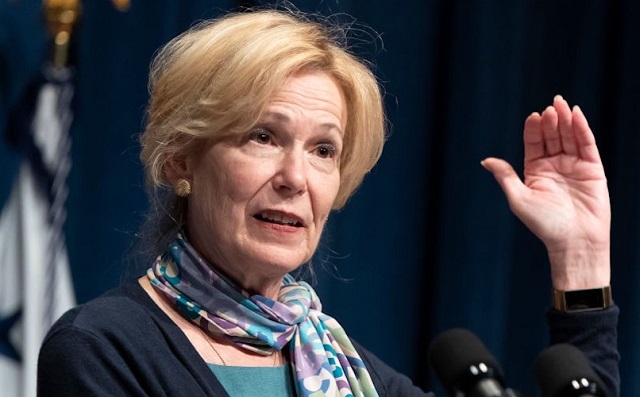
 COVID-192 days ago
COVID-192 days agoFormer COVID coordinator Deborah Birx now admits jabs could have injured ‘thousands’
-

 armed forces22 hours ago
armed forces22 hours agoTrudeau government has spent $10 million promoting DEI in the military as recruitment flounders
-
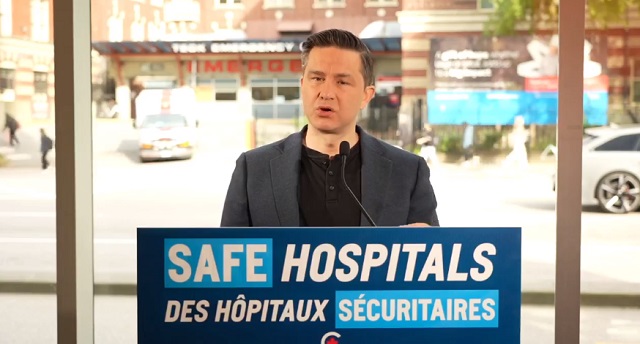
 Addictions1 day ago
Addictions1 day agoPoilievre attacks decriminalization of hard drugs with Safe Hospitals Act







